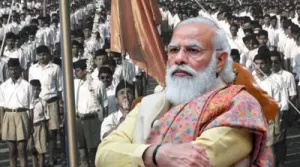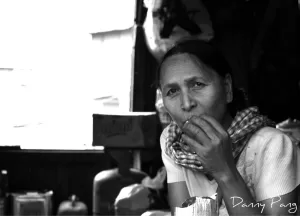It is clear that science is important in combating COVID-19. We need to know how the virus spreads and what types of precautions are most effective. We need to estimate the number of cases to plan for caring for the sick. We need to know the molecular structure of the virus in order to devise tests for it, and we need to develop vaccines. None of these things can be done without careful observations, experiments, evidence gathering, and the use of deductive and inductive logic: the building blocks of science. At the same time, the pandemic reveals the political nature of science. COVID-19 has exposed how science is controlled, framed, and exploited in ways that run counter to the interests of people and public health.
Over two decades ago, Professor Richard Levins, one of the founders of Science for the People, described this phenomenon as the “dual nature” of science.(1) On one hand, scientific investigations discover truths about material reality that are independent of ideology or politics. On the other, the practice of science is a human endeavor, deeply embedded in a social and political system that determines what subjects are investigated, why they are investigated, who investigates them, and how they are used. Beyond that, the dominant ideology of the political system influences how the results of scientific investigations are framed, conceptualized, and communicated. Because of this, we cannot view science as objective with respect to public policy.
Political influence on science in the United States has seriously weakened the response to the pandemic in several ways:
-
- The health and medical research program of the United States is primarily oriented to drug development and chronic disease diagnosis and treatment–areas that are favored by profit-seeking enterprises.(2) Despite a multitude of warnings about the vulnerability of the United States to pandemics, before the emergence of COVID-19, pandemic research was not a major priority in U.S. health and medical research.(3) And within the limited scientific preparation that was done, in the past decade it seems that scant attention was paid to research on how social determinants of health such as race, poverty, or socioeconomic status would affect the control and consequences of a future pandemic. For example, the 2017 updated “Pandemic Influenza Plan” released by the Department of Health and Human Services (HHS) refers to an established “scientific preparedness infrastructure that informs sound public health practices,” but makes no mention of social determinants in the research areas it outlines, or indeed in the entire document.(4) This apparent lack of emphasis on social determinants in U.S. pandemic research continued in the early stages of the current pandemic, when few published papers discussed these determinants.(5) Much of the relevant data for analyzing these factors has not been collected. For example, as of April 15, 2020, 78 percent of the COVID data reported by the Centers for Disease Control and Prevention (CDC) did not disaggregate race or ethnicity–key factors in understanding the spread and effects of the pandemic.(6)
- There have been blatant attempts to hide or selectively present scientific facts, dissolve scientific panels, and suppress or threaten individual scientists whose views contradict the status quo. In 2018, the Trump administration disbanded the pandemic preparedness unit of the National Security Council.(7) Early in the pandemic, scientists and public health officials were told that they must get the approval of Vice President Mike Pence on whatever they communicated to the public.(8) More recently, Dr. Rick Bright was removed from his position as director of a lead federal agency addressing the pandemic because he was outspoken in correcting false information about COVID-19 stated by President Trump.(9) In each of these cases, the government acted to keep essential public health information from its citizens.
- Facts about the pandemic are framed to serve political interests. The virus is characterized as a foreign invader and referred to as the “Chinese Virus” in order to promote xenophobia, drawing attention away from the monumental failures of the U.S. government in handling the pandemic and justifying attacks on the World Health Organization.(10),(11) The role of individual behavior in controlling the pandemic is emphasized, while less attention is given to policies and regulations that would create safer workplaces. This framing often takes place at press conferences at which government leaders “spin” the facts to promote their agendas and sideline the voices of scientists, public health experts, and activists from marginalized populations.(12)
Pandemic Denial and Pseudoscience in the Pandemic
Compounding the neglect, obstruction, and distortion of scientific investigation related to the pandemic is the denial of scientific facts, similar to what has occurred with climate change.(13) There are conspiracy theories about the origin of the pandemic, claims that public health measures are dangerous and should be ignored, and advocacy for unproven “cures.”(14) These “theories,” promoted by reactionary forces up to and including the president of the United States,(15) confuse and divide people and weaken our ability to unite people in demanding a viable public health program to address the pandemic.
Summary and Conclusion
Science is an essential tool in controlling the spread and effects of the COVID pandemic. But the effectiveness of this tool is blunted by the political shaping of science and the promotion of pseudoscience. We should heed Levins’ message about the dual nature of science. While combating the ways in which science is molded to serve the political interests of those in power, we must affirm and defend the validity of the scientific information that is critical to controlling the pandemic.
References:
-
- Richard Levins, “Ten Propositions on Science and Antiscience”, Social Text, no. 46/47, Science Wars (Spring–Summer, 1996): 101-11, doi: 10.2307/466847
- David B Resnick, ”Setting Biomedical Research Priorities in the 21st Century”, Virtual Mentor, no. 5 (July, 2003): 211-214, doi: 10.1001/virtualmentor.2003.5.7.msoc1-0307
- Uri Friedman, “We Were Warned”, The Atlantic, March 18, 2020, www.theatlantic.com
- U.S. Department of Health and Human Services, “Pandemic Influenza Plan 2017”, www.cdc.gov.
- Saman Khalatbari-Soltani, Robert G. Cumming, Cyrelle Delpierre and Michelle Kelly-Irving, “Importance of collecting data on socioeconomic determinants from the early stage of the COVID-19 outbreak onwards”, Journal of Epidemiology and Community Health, no. 74 (May,2020): 620-623, doi: 10.1136/jech-2020-214297.
- Gregorio A. Millet, Austin T. Jones, David Benkesr, Stefan Baral, Lana Mercer, Chris Beyrer, Brian Honemmann et al., “Assessing differential impacts of COVID-19 on black communities”, Annals of Epidemiology, no. 47 (July 2020): 37-44, doi.org
- Lena H. Sun, “Top White House official in charge of pandemic response exits abruptly”, The Washington Post, May 10, 2018, www.washingtonpost.com
- Michaek D. Shear and Maggie Haberman, “Pence Will Control All Coronavirus Messaging from Health Officials“, New York Times, February 27, 2020, www.nytimes.com
- Laurel Wamsley, “Rick Bright, Top Vaccine Scientist Files Whistleblower Complaint”, NPR, May 5, 2020, www.npr.org
- Brian Bennett, “Why President Trump Wants to Frame COVID-19 as a ‘Foreign Virus’”, Time, March 12, 2020, time.com
- Anne Gearan, “Trump Announces Cutoff of New Funding Over World Health Organization Pandemic Response”, Washington Post, April 14, 2020, www.washingtonpost.com Zachary B. Wolf, “Trump’s coronavirus briefings matter whether or not he tells the truth”, CNN Politics, March 30, 2020, www.cnn.com
- Dana Nucitelli, “Coronavirus doubters follow climate denial playbook”, Yale Climate Connections, April 14, 2020, www.yaleclimateconnections.org
- Jon Alsop, “The many coronavirus conspiracy theories”, Columbia Journalism Review, May 15, 2020, www.cjr.org
- “Coronavirus: Outcry after Trump suggests injecting disinfectant as treatment”, BBC News, April 24, 2020, www.bbc.com
(Frank Rosenthal spent 35 years doing research and teaching in environmental and occupational health sciences before retiring from Purdue University. He was one of the original members of Science for the People in the early 1970s and helped to relaunch the organization in 2015. Article courtesy: Science for the People. Science for the People is dedicated to building and promoting social movements and political struggles around progressive and radical perspectives on science and society.)




